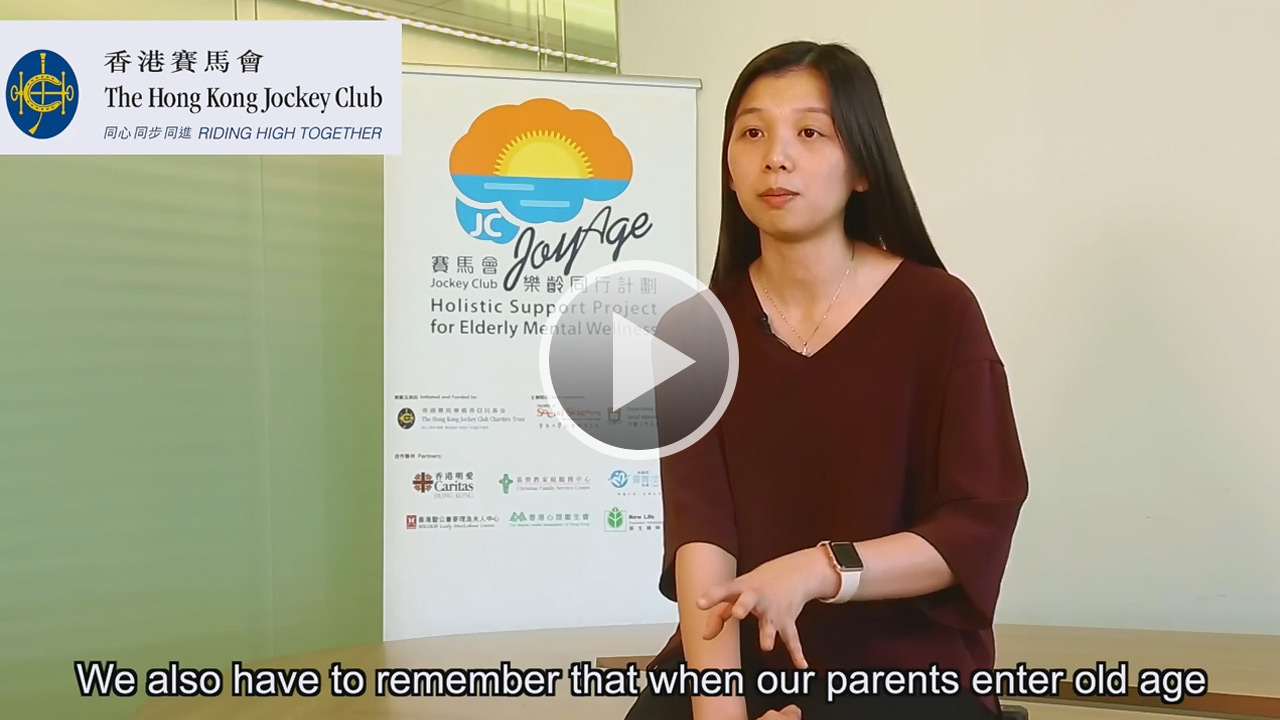

Community & Charities
MORE TIPS
Key to unlocking the elderly heart
If you notice a change in the behaviour or emotions of your parents, and you want to show them that you care but you don’t know where to start, or if they hesitate or refuse to talk about their feelings with you, Wai Wai Kwok, Clinical Psychologist and Training Director at JC JoyAge: Holistic Support Project for Elderly Mental Wellness, has some points for you to consider:
- A good relationship is based on good communication. If you don’t already have a close relationship with your elderly family member, or if they are not good at expressing themselves, you won’t get off to a good start. Why not try participating in some of their favourite activities to break the ice; then when the atmosphere is more relaxed, you can take your conversation to the next level.
- Don’t just ask questions. The elderly care about the well-being of their family members; so as children, you can first share what’s going on in your daily lives. This will start a conversation with them that will make them feel as if they are equals.
- Don’t think: “I’m more knowledgeable than you and am here to solve your problems”. The elderly can sense this and will feel unhappy. So children should avoid lecturing or forcing the elderly to follow their ways. They don’t need you to tell them what to do, but they do need your love and concern.
- When faced with elderly family members who are irascible and hard to communicate with, your emotions will be easily triggered. You should always remain calm and patient so that they will feel that you genuinely want to understand them.
- Invite them to talk while keeping an open mind. Even if your advances are rejected, you should understand that there may be a lot going on behind the scenes, for example they may be afraid of becoming a burden, or they feel that no one understands them. If you can keep inviting them to respond with no strings attached, the elderly will know that even if they cannot fully express themselves right now, they will still receive support from their family. This is crucially important to the elderly on the edge of depression.
The family dynamics between the elderly and their children is the principle reason for disputes and difficulties in communication, and this will obviously affect the emotions of the elderly. Wai Wai Kwok will share how family dynamics are formed and how family relationships can be handled in a better way.



